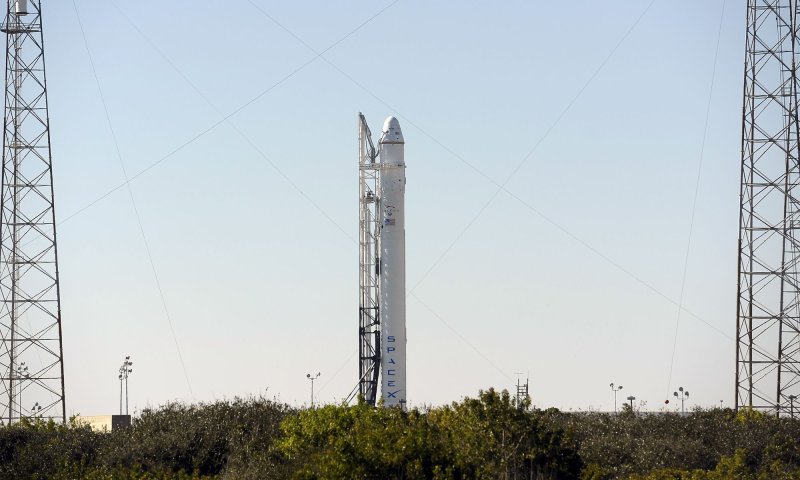WASHINGTON, July 26 (UPI) -- NASA and SpaceX, based in California, have agreed on the private spacecraft company's first date with the International Space Station, the space agency says.
The SpaceX Dragon capsule will launch aboard a Falcon 9 rocket Nov. 30, and will rendezvous and dock with the space station Dec. 7, NewScientist.com reported Tuesday.















